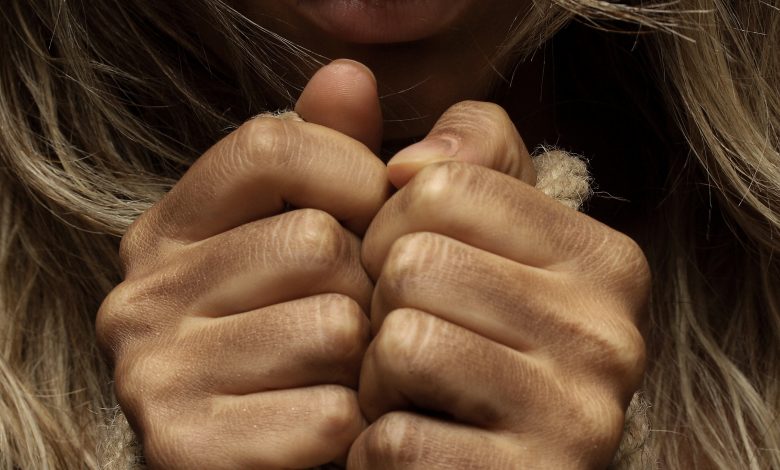
 Leaving an intimate Relationship is a very challenging time.It can also be the most dangerous phase in the victims life.Leaving must be done with some form of assistance and caution.It is good to be aware that the ultimate choice to leave lies on the victim.They must also be ready to honestly tell their story to the right offices and report the physical abuse to the police and doctors . Under-reported cases are many this only makes the abuser stronger, more courageous ,and repeatedly abuse his/her victim more severely each time.Why don`t they just leave”?
Leaving an intimate Relationship is a very challenging time.It can also be the most dangerous phase in the victims life.Leaving must be done with some form of assistance and caution.It is good to be aware that the ultimate choice to leave lies on the victim.They must also be ready to honestly tell their story to the right offices and report the physical abuse to the police and doctors . Under-reported cases are many this only makes the abuser stronger, more courageous ,and repeatedly abuse his/her victim more severely each time.Why don`t they just leave”?

- Fear.What will happen if l decide to leave?How?Where to?When ?Who will help me?
- Tension Building Phase :In the beginning,the abuse is non-physical.It usually starts with insults, hurting words,constant criticism ,”icing ,,-ignoring them or menacing looks.
- Acute Battering Phase .The physical abuse plus most of or all of the other abuses.Complete financial control,sexual abuse,Isolation ,refusing the victim to work or visit friends and family,withholding and controlling purchases and time limits.
- A Make Up Phase/”come back home”/l will go into therapy ,empty promises, gifts, holidays and outings.But it is a very short lived phase,the beatings start up and the violence escalates each time.
- Embarrassment or Shame:It is very difficult to talk about private matters of abuse and even to admit it especially for people in leadership positions .Abusers value their public image and the abuse is usually a top secret in the family.The shame from the abused that they will be laughed at by friends and the world.
- The regrets The victim abuser believes they are so stupid.They also usually end up believing they did something wrong. They take on the blame and punishments as fair.
- Low Self-Esteem.A mental condition that comes with the abuses,intimidation,constant corrections and harassments .Words like ,,you are very stupid!” or “You are an idiot”or “You are so ugly,so thin,too fat ,bad mother,a good for nothing…”

- The Battered,Abused Victim Syndrome:-The victim is so fearful and at this point convinced there is no escape and they are in a hopeless situation.
- Fear of being publicized.a)A person might be threatened to being exposed on internet having being coerced with some bedroom pictures. b)Within an LGBTQ relationship where one partner has not fully “come out of the closet” being open,the abusive partner may threaten to reveal the secret.
- Stockholm Syndrome Phase .The victim having being in isolation and a hostage relationship develops a very strong bond to their abuser.Because of the deprivation of kindness and lack of normal friendships ,they become emotionally attached to their abuser and can transfer to being partners in co-abuse,usually on their own children.
- .Disability:When someone is physically dependent on their Abusive partner,they can feel that their well-being is connected to the relationship.This dependency can heavily influence their continued sty in an abusive relationship.
- Traumatic Bonding Phase If a person witnessed domestic violence as a child and in the neighborhood,they might really not know what a healthy relationship looks like.They might convince and imagine this is the macho thing to do but even if corrected they might be too used to this abusive acts ,enjoy causing hurt and desire power above all other values.
- Language Barriers/Immigration Status.If a person is undocumented,they may fear that reporting the abuse will affect their immigration status and they will be deported.Even for new migrants,or those isolated and living legally in a foreign country they are threatened through false information.Normally,the victim is falsely made to believe that their partner has total control over their stay in the host country.If they can not speak the host country official language,they might be denied school,cease to know their rights or incapacitated to the point they can not go anywhere alone.(See migrant abuse)
- Lack of money /Resources?If the victim is financially dependent on the abuser they assume they are doomed .With no control of even their own money they feel unworthy and enslaved.In Europe where they can get financial help,they might be unaware of the shelters,free education ,government funds and the laws against abuse

- Cultural /Religious Reasons:Traditional gender roles supported by victims culture or religion may influence them to stay rather than leave.There is fear of being ostracized by their community,being completely cut-off and even losing their life in some countries.
- Psychological Entrapment Theory.The victim feels they have invested too much,too many years in the relationship.This is usually in the form of property ,land ownership,and other domestic matters.The victim chooses to persevere any violation in order to save what is theirs.
- LOVE:The victim believes they love their abuser.They confuse insecurity with love.
 They may also have children and close family ties and want to maintain the perfect marriage image.Abusive partners can be very charming and wonderful at the very beginning of a relationship and the abused partner might be in denial and wishing to hold on to the past and making excuses to whosoever discovers the hidden abuse.They may only want the violence to end but not the relationship.They usually believe love will change it one day.
They may also have children and close family ties and want to maintain the perfect marriage image.Abusive partners can be very charming and wonderful at the very beginning of a relationship and the abused partner might be in denial and wishing to hold on to the past and making excuses to whosoever discovers the hidden abuse.They may only want the violence to end but not the relationship.They usually believe love will change it one day. - Multi-factors.These could be a combination of one or all of the above .Mainly:
- Family History
- Personal Relationships
- Societal Norms.
- Social and cultural factors.
- Read all articles and links to help you help yourself or another
- Read Part 2:Why is it difficult to leave an abusive relationship?
#National Domestic Violence Hotline.#Domestic Violence Hotline


